That's really accurate. During my exams I was suffering from severe anxiety and even though I was falling asleep I was waking up during the night and I hardly ever had a good sleep :/ Exercising during the day helped me TONS.
What Is Evening Anxiety and How to Control It
For those who work during the day, the night is their door to rest, studying, hobbies, and hangouts. The retreat of the sun allows for an escape from routines and obligations. For many, it can be the preferred time of day. However, sometimes, the night throws us into a steep path to walk on. Worries (some well-founded, others not so much) can make the night an uncomfortable and uncertain place.
Bright Side has put together some advice to help you better understand night anxiety. We’ll explore what causes it, and give you information that will allow you to face it and overcome it.
Night anxiety
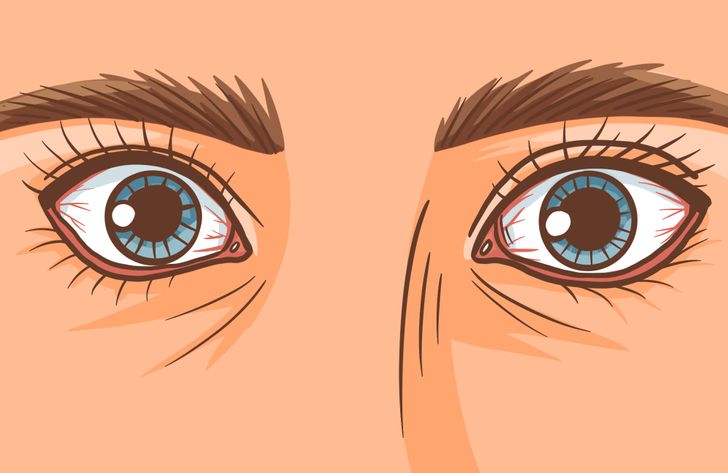
You are in a comfortable, familiar, warm room, sitting on your bed, what on earth could prevent you from a good night’s sleep? Nothing, right? Well, it’s not that simple. Maybe the conditions are just not quite right. Perhaps dreams are not that easy to catch, and the night vigil tingles on in our room as we toss and turn in bed, dreams getting farther and farther away.
We have all been through a situation like this and know all too well what the consequences will be. The next day will be hard because we won’t have rested enough. Nocturnal anxiety is like a nightmare we have with our eyes open wide.
However, there are ways to face it and even help us to overcome it.
What causes us to develop night anxiety
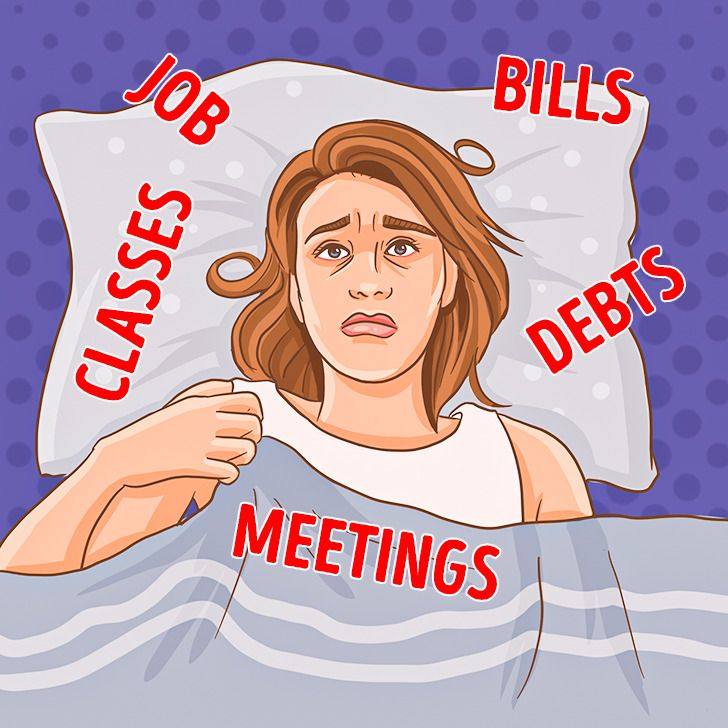
As the sun goes down, our worries often linger on. Sometimes the company of others may temporarily dispel our fears, together with some activities that may put our minds to rest. But when we lay down to sleep, silent and alone, all of our worries and problems may come back.
Some concern may appear in the middle of the night, and we can’t deal with it. One fear leads to another, and another, and yet another. We end up in a night world where real worries are mixed with anxiety born in the night and sleeping becomes almost impossible.
Here are some tips that will help you avoid night anxiety, and allow you to better deal with it.
1. Try to detect what it is about a situation that triggers anxiety.
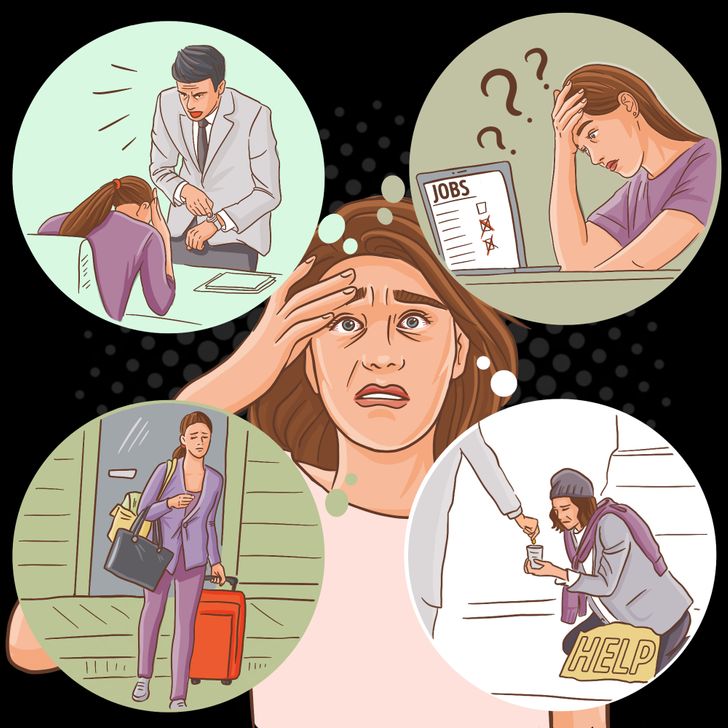
As we’ve said before, when you lose yourself in night anxiety, you end up entangled in several concerns at once. Not all of them are real or deserving of our attention. That’s why we have to establish what it is that we really want to solve.
For example, you’ve made a mistake at work. Maybe it was not a grave mistake, but our anxiety makes it out to be bigger. It makes it into a monster, causing you to worry about your future at work. You think that you may not be able to pay your rent soon and that maybe you should move, but where? How?
So instead of really thinking about the problem and measuring its importance, you’ve lost yourself in endless worries that don’t make any sense. Pay attention to the real problem and think about how you can solve it the next day instead.
2. Stay busy during the day.

If you demand a lot of physical and mental exercise from yourself throughout the day, when you hit your bed at night, you will have only one option: sleep. Therefore, an excellent way to avoid night anxiety is to not leave room for it to settle in. Lying down on your bed with your body and mind exhausted by the day’s activities will lead to a restful sleep. Try out some additional sports activities and hobbies to see you through the day and night.
3. Have a nighttime routine.
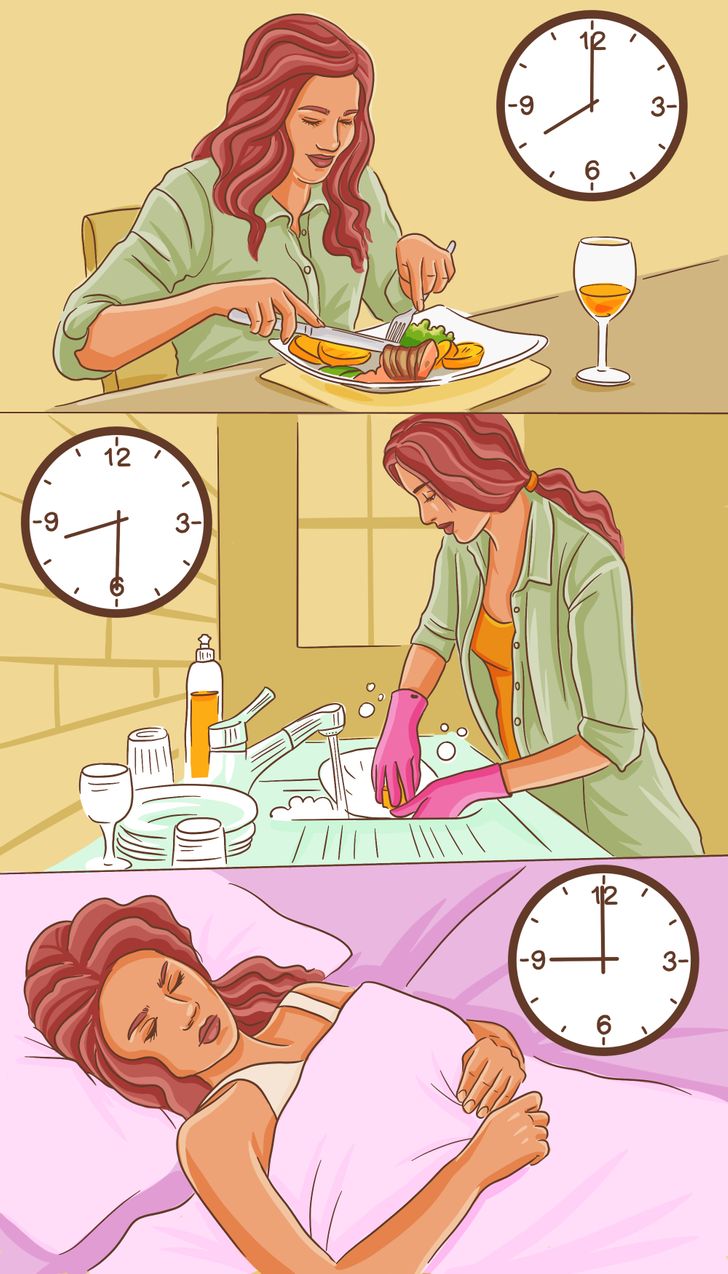
Although boredom has a bad reputation, it can sometimes be helpful. We all like to have fun, but if we want to rest, it needs to come to a stop. Human beings are creatures of habit. If you get used to a nighttime routine, with fixed times for eating, washing dishes, having tea, and going to bed, you’ll naturally fall asleep. Sleeping at the same time also helps us regulate our circadian rhythm, which will lead us to sleep more naturally and beneficially.
4. Eat healthy.
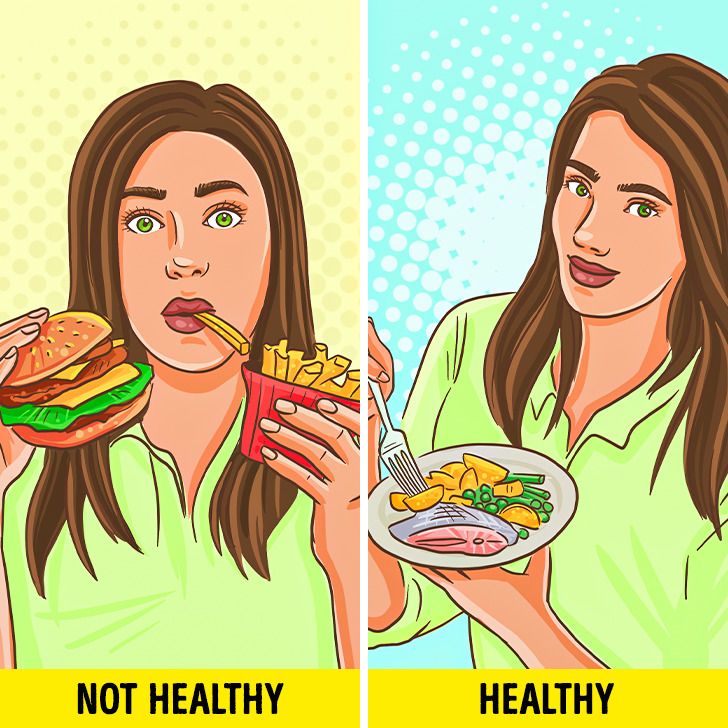
This is an important point. Gulping down high-fat foods before going to bed is not the best way to fall asleep. You will not be able to sleep well if you have indigestion. Therefore, your dinner should be on the light side, rich in vegetables and other easy-to-digest healthy foods.
5. Avoid energy drinks.

This is another vital point. It’s useless to do all of the above if, before falling asleep, you drink alcohol or other drinks that contain stimulates, like caffeine. It’s always best to have your meal with mineral water or a glass of warm milk.
6. Make sure you have a cozy sleeping environment.
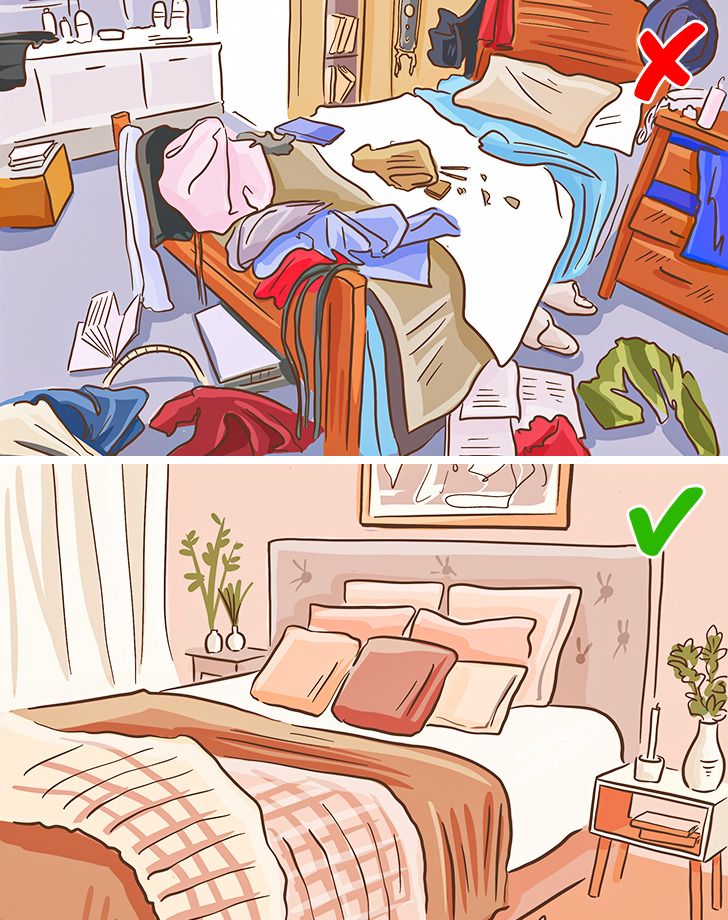
This is another vital point. The room in which you prepare yourself to sleep should contribute to a good rest. It will be easier for you to sleep in a bedroom where you feel comfortable, that is clean, tidy, and has sufficient ventilation. An ideal room for sleeping should have all these characteristics and also be “warm” to the eye.
7. Try to only use your room for sleep.
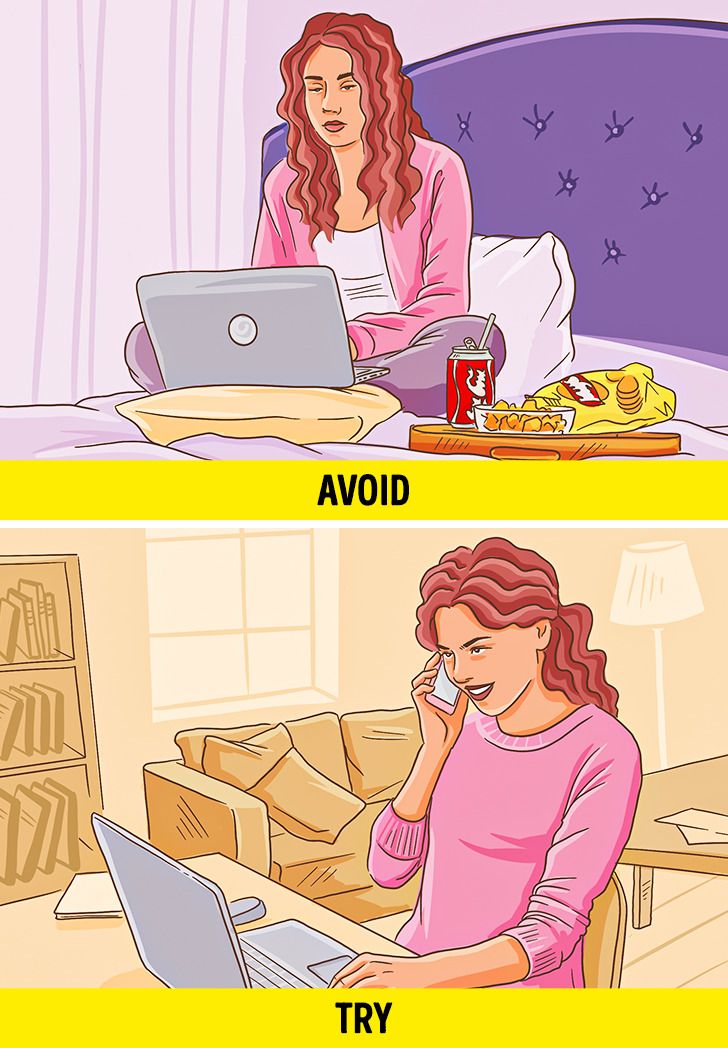
We should all admit that our bed is tempting, and we often give in to its temptation. So we use it not only for sleeping, but for all sorts of activities: studying, reading, surfing the internet, watching TV, and even eating. We can spend a good part of our day in the bedroom. Then, at bedtime, our body may not perceive the change in routine and realize that it’s time to sleep.
It’s okay, then, to make your bedroom a “sacred place” that you only use when you need to fall asleep. All other activities should take place outside of it.
8. Practice breathing exercises.
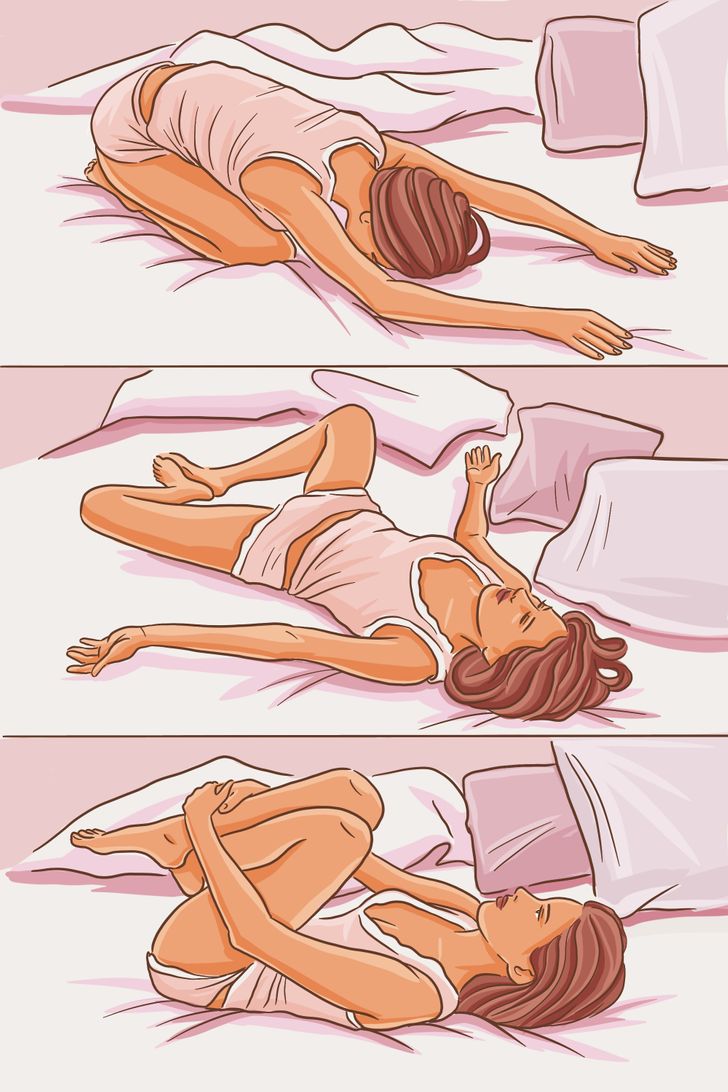
Shallow or out-of-control breathing is undoubtedly the enemy of restful sleep. It’s a good idea to incorporate breathing exercises into your nightly routine. They will make both your body and your mind achieve a necessary harmony. At first, it may be a little challenging to get used to, but you will feel the benefits soon and these exercises will make it into a part of your healthy nighttime routine.
9. Ask for psychological help.
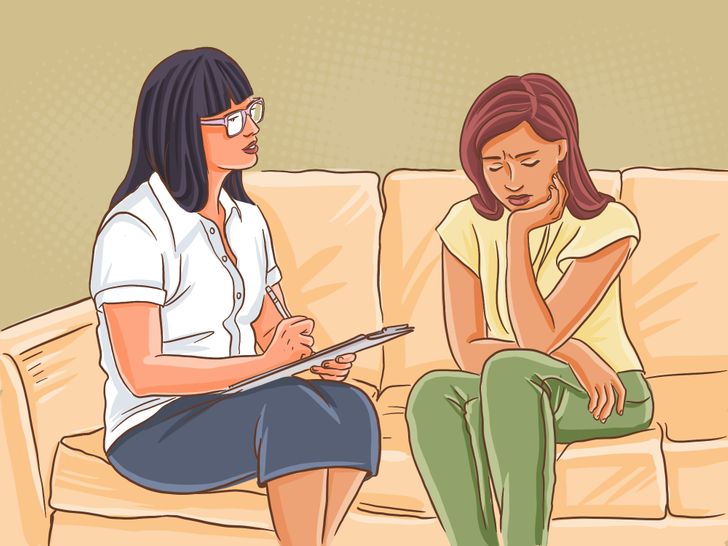
Although we have said that night anxiety is a condition that most people experience on occasion, if it affects you regularly, ask for the help of a specialist. Getting restful sleep is essential for your health and well-being. If you notice that you experience nighttime anxiety frequently, you should go to a psychologist for help. She will be able to determine what the reason for this disorder is and figure out an adequate treatment plan to help you overcome it. Remember: life needs you wide awake, and for this, you need to be able to sleep well.
When was the last time you couldn’t fall asleep? Would you dare tell us why? Which of all the points mentioned in the article is already part of your usual routine? Please share it with us in the comment section.
Comments
I usually do some Yin yoga before going to bed ;)
Hmm.. not a yogi here sorry :p what's Yin Yoga? Is it like breathing exercises?
haha it's fine, there are so many different types of it :) Yin is mostly stretching and kind of a restorative workout. Here are some poses.
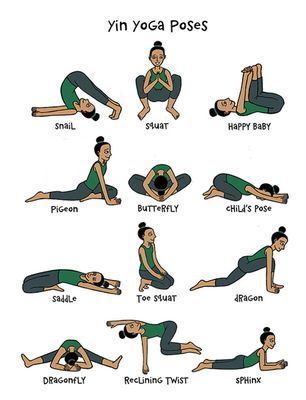
WOW.. some of them look.. complicated hehe. But I will try it;) Thanks!
Namaste *
I usually don't get asleep
actually I have insomania
Related Reads
15 Real-Life Stories With Hard-to-Believe Plot Twists

My MIL Excluded Us From the Family Trip Because We Don’t Have Kids, So We Made Her Regret It

10 Stories Where Karma Took Over in the Most Satisfying Way

17 People Revealed What Became the Last Straw in Their Relationship

I Threw My MIL Out of My Wedding After Opening Her Humiliating Gift

I Refuse to See My MIL Ever Again - Her Act Is Unforgivable

I Refused to Let a Family Tragedy Ruin My Wedding Day

13 Workplace Dramas That Outdo Any Soap Opera

15+ Stories That Prove Moms’ Love Tank Never Runs Empty

My Husband’s Ex Wanted to Make Me Homeless and Poor, Karma Hit Her Hard

14 Betrayal Stories That Prove You Can Trust Absolutely No One

11 Plot Twists That Could Even Make Hollywood Jealous
